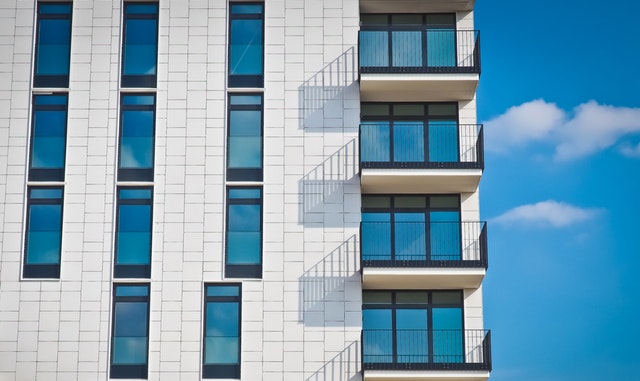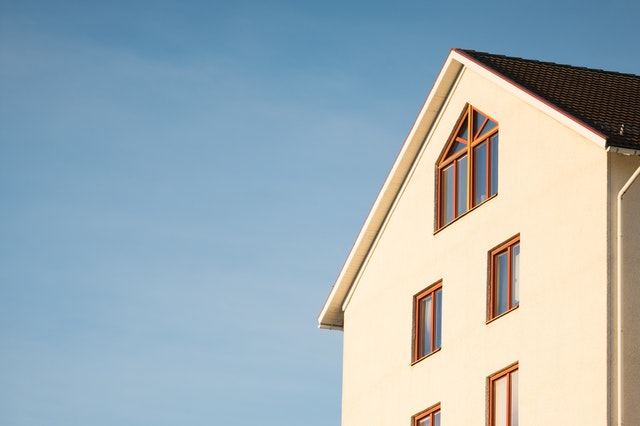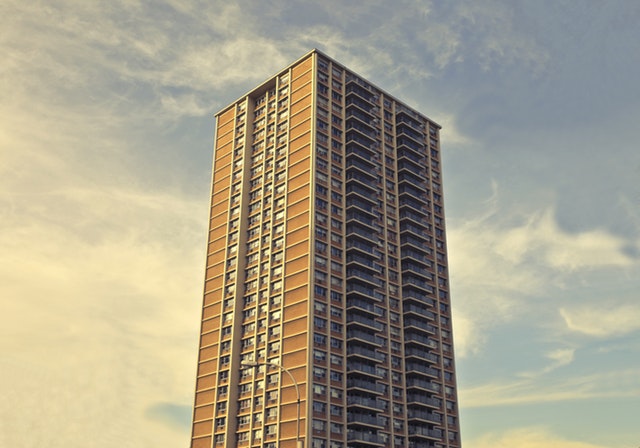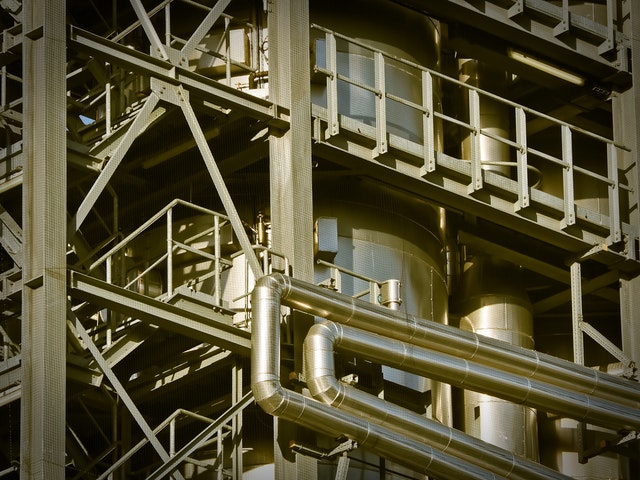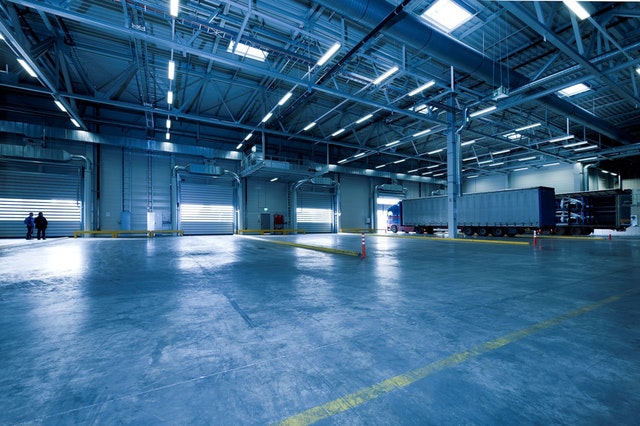Expresses concern about Soviet-era serial apartment buildings.
The Ministry of Economy (ME), which supervises the construction industry, expresses concern about the strength of the load-bearing structures and connecting elements of the serial apartment buildings built during the Soviet era, LNT TOP10 reported on Sunday. For a large part of typical buildings, the regulatory end of service period will arrive after 10 or 15 years, but even sooner – after one year – the recommended safe operation will end for apartments of the 464 series. The Ministry of Energy is aware that the potentially biggest risks with the load-bearing structures could be the houses of the 464 series, therefore, in the next five months, an in-depth study of the technical condition of ten buildings of the 464 series will be carried out on a random basis. The winner of the procurement tender, who will be determined by June, will have the task of performing a strength test of the load-bearing structures, their nodes and mezzanine cover slabs, as well as assessing the technical condition of the exterior wall panels and their seams. If the residents were obliged to let construction engineers into their apartments, a really bad picture would be revealed already now – 15 years before the end of operation, also in the nine-storey houses of the 602 series, – Minister of Economy Ralfs Nemiro (KPV LV) told LNT TOP10. In the apartments, arbitrarily massive reconstructions have been carried out in the load-bearing walls – new doorways, arches and partitions have been built, which press heavily on the lower floors. “These are actions affecting the load-bearing structures. The cracks found so far in individual houses are not always related to the soil, but to structural changes. Each person making a small part of these changes with illegal conversion essentially affects the entire supporting structures of the house. We may end up in an unpleasant situation, because self-dealing is not allowed,” said Nemiro. If the in-depth construction engineering technical expertise of Soviet-era typical houses shows significant problems, it can bring very unpleasant consequences for the apartment owners, because the construction boards of the respective municipalities would be involved. “If the opinion says that the mezzanine coverings in a separate part or in the whole house are really in an unsatisfactory condition, they cannot hold the load-bearing capacity, then of course we decide to deny operation. The ban can be complete or partial – a specific floor, or individual rooms may not be operated,” explained Edgars Butāns, representative of the Riga City Construction Board, to LNT TOP10. This would mean that you should neither continue to live in such houses nor sell the apartments. The biggest losers would then be those who took out a mortgage loan for the purchase of Soviet-era serial apartments. As Māris Saulājs, head of SEB banka’s Retail lending center, says: «Each borrower is responsible for obligations until they are fully repaid. If such a situation occurs, then the resident finds himself in an unenviable situation, because he has to continue to pay the loan for the apartment, which then actually no longer exists, and they have to continue to cover the costs of the new home. The resident finds himself in a hostage situation». If due to serious technical problems, the buildings will be banned from operation, there will be no response from the banks and no loans will be written off. People should be responsible for what they buy. Therefore, SEB bank is eagerly awaiting the results of the examinations ordered by the Ministry of the Interior for the houses of the 464th series, but it would be necessary to conduct a national general audit for all 11 series of the Soviet era. From this, decisions would be made in which to completely stop new lending at home.
If due to the poor technical condition of the building constructions, there will be some safety precedents or, according to the technical opinions of the construction engineers, the operation bans will be imposed on the USSR-era apartment houses, this may affect the Latvian real estate market. Since more than half of apartment purchase/sale transactions take place directly with apartments built during the Soviet era, SEB banka predicts a major blow to the industry. “Of course, yes. If the house is delicensed, then residents will refrain from buying the particular series, and thus this segment will disappear. There will be no more interest in such properties,” Saulājs outlined the theoretical situation. Jānis Krops, representative of Swedbank: “If the house is not in a very good technical condition, it is likely that the repayment period for this loan will not be very long. It could also require a slightly higher co-payment from the borrower. This means that where there is caution, these conditions are slightly less favorable». In order to partially save the situation, apartment owners need to invest more actively in capital repairs and renovations. However, at least for now, in most cases, it ends in nothing, because it is impossible to gather a quorum of support with 50% plus one vote in the population meetings. Ardis Pāvilsons, a member of the board of the apartment building management company “Civinity”, believes that the law should establish the obligation for apartment owners to carry out building renovations and capital repairs: “It should be defined in the law that when the end of this normative service life is approaching, a savings must be made in time. This should be imposed on apartment owners. At the moment, the tools do not allow to achieve it». The regulations of the Cabinet of Ministers state that the indicative service life of serial apartment buildings built during the Soviet era is 60 years on average (series 103, 104, 467, 602, Czech project). The expiration date for the oldest Khrushchev-era houses is less than 6 years. The fact that the end of the regulatory life comes does not mean an automatic state of emergency and a ban on people living there. This is the moment when it is imperative for apartment owners to order the in-depth technical expertise of a civil engineer. Laimdota Šnīdere, assistant professor at RTU’s Institute of Construction Business and Real Estate Economics: «These houses can be safely used for another 40 or 50 years. There is no need to panic! You should start getting worried when a certified construction engineer shows a series of problems during the assessment of the technical condition, and then those places where there are defects must be corrected». However, Juris Biršs, member of the Latvian Union of Construction Engineers, certified civil engineer, is much harsher in his assessments and with a more frightening forecast: «Materials are followed by a point of fatigue, and then – suddenly, suddenly during the day they can burst, for example some metal joints. This can cause deeper deformations. The end of this regulatory lifespan is a signal for us to think hard about what to do, not just live and keep re-examining. These houses have lived their time». According to construction engineer Birš, these Soviet-era apartment buildings should be demolished for the sake of safety: “The most sensible thing would be to tear them down, because restoring or renovating a building that has no artistic or historical value is economically unreasonable. It would be much simpler to remove it and build a new one. If nothing is done, then it will start to collapse». The civil engineer recommends gradually moving people to temporary living spaces until new projects are built in place of the demolished USSR-type buildings or elsewhere.
Most likely, then they would be even more voluminous houses, because a certain number of additional apartments would have to be created, the sale of which could finance such construction. “If done wisely, all this can be economically balanced. For example, new housing estates have been built in Moscow, and people are forcibly – whether they want it or not – taken from the old buildings and forced to occupy the new apartments. The old arrays are demolished. Economically, it is very fantastic, but we approach it very democratically. But it won’t end well!” See the full version of the article here

